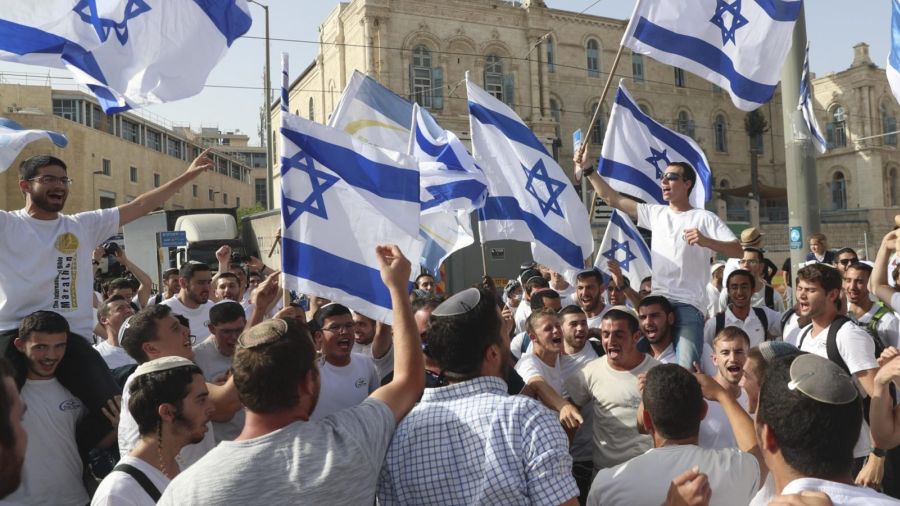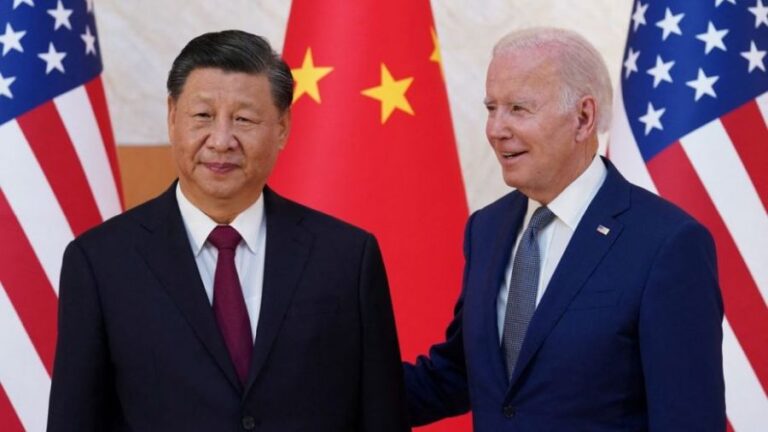The Sword and The Book: How Zionism Does Violence to the Jewish Tradition
In his comprehensive treatise on the subject of Judaism vs. Zionism, Rabbi Yaakov Shapiro writes, “The Jewish lifestyle is incompatible with the sword.” Violence and war are frowned upon in Judaism, which is one of the reasons that traditional, orthodox Jews by and large distance themselves from, if not completely rejecting, Zionism. It also explains why young Ultra Orthodox men and women refuse to serve in the Israeli army, and in fact prefer to go to prison.

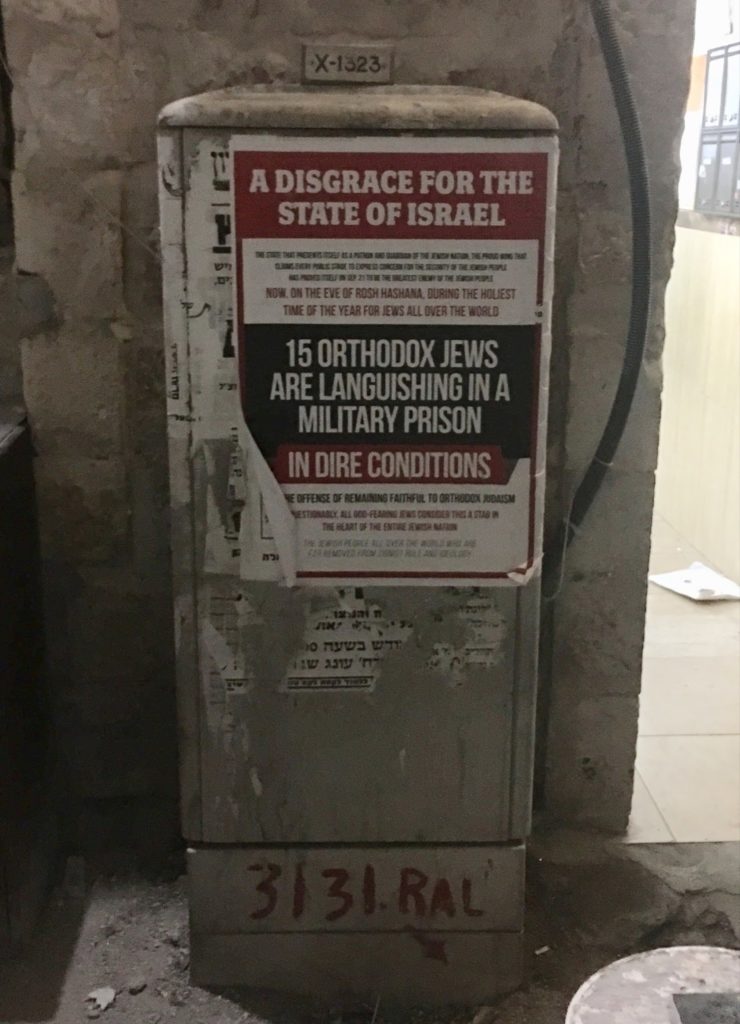
The violence and brutality with which the State of Israel has conducted itself since it was established shows that it is a state that has an insatiable appetite for war. Because Israel’s false claim of being the State of the Jewish People has been widely accepted, one may wrongly assume that the violence and racism that are so integral to Israel are somehow a reflection of Jewish people and the Jewish religion. This, however, could not be farther from the truth.
Rabbi Shapiro writes, “We never glorified war or warriors the way other nations did. The only people glorified by us are our Torah scholars.” And even though Jewish people do have sites that they consider holy, “never did the Jews commemorate as a national symbol the site of an historic battle,” nor do Jewish people commemorate battles or victories as holidays or event days of remembrance.
Hanukkah
One Jewish holiday that is misunderstood and completely misrepresented by the Zionists is Hanukkah. The Zionists claim that it is a celebration of a military victory of the Jews against their Greek oppressors. However, Rabbi Shairo says, this is a secular-Zionist interpretation of a religious holiday.
The holiday of Hanukkah is a celebration of a miracle in which the oil for the lamp to illuminate the temple in Jerusalem lasted longer than it naturally would have otherwise. In fact, Rabbi Shapiro tells us that even Maimonides, who is arguably the greatest Jewish scholar who ever lived, commented on this issue and stated that celebrating Hanukkah as a military victory would be contrary to the Torah “because the Torah celebrates peace above all else.”
To demonstrate how Hannukah has been misrepresented, Rabbi Shapiro quotes Zionist figures like the poet Chaim Nachman Bialik, author Leon Uris, and even Theodor Hertzl himself. They created and perpetuated the myth that the Macabees fought for national rights and self determination. This, according to Rabbi Shapiro, “is a violent, Zionist interpretation.” “The war in the story of Hanukkah isn’t even mentioned in the Talmud,” Rabbi Shapiro stressed when I asked him about this.
Rabbi Shapiro quotes Rabbi Shimon Shwab (1908-95), a German anti-Zionist rabbi who served as Chief Rabbi of the Washington Heights Jews. Regarding Hanukkah, he said, “The Maccabees didn’t fight for the Jews, they fought for the Torah; they would give their lives to stay Jewish. To show that they’d rather die than not be able to worship.” Rabbi Shwab further said, “Beis ha mikdash [the Temple] is not worth a life. We didn’t go to war because of it but because they tried to make us not Jewish.”
The Sword and the Book
The concept of the Book vs. the Sword is central to Judaism. Judaism is a religion that demands of its followers that they observe the book and not the sword. This goes back as far as the Book of Genesis, where the Patriarch Yitzhak has two sons, the twins Ya’akov and Esav. Each one of his sons represents one of these two qualities. Ya’akov, who inherits from his father and becomes the third patriarch, represents the scholar who is faithful to the Torah. The second son, Esav, represents the warrior. The Torah speaks about “the voice of Ya’akov and the hands of Esav.” Later on in Jewish history these terms were known as safra, which is Aramaic for the word “book,” and saifa, which is Aramaic for the word “sword.” The two are incompatible and will forever be at odds with each other.
To further illustrate this case, Rabbi Shapiro brings a story from the Gemara, one of several elements that make up the Talmud, which is the body of work that constitutes Jewish life, law and learning. In this story, Eleazar ben Perata was a rabbi who lived in Palestine during the second century CE, when the country was ruled by the Romans. The Romans, who according to the story made it illegal to study the Torah, accused him of armed robbery and of studying the Torah. When brought before the judge he claimed, “I can be guilty of either safra (studying the book, or the Torah) or saifa (holding a sword) but not both.”
Resistance to the Zionist warrior mentality
The resistance to Zionism by Torah Jews is largely due to the warrior version of a Jew that the Zionists invented. The early Zionists, and to a large degree Zionists today, despise traditional, ultra-orthodox Jews. Zionism as a movement wanted to put an end to the existence of what they termed “the diaspora Jews,” who were characterized by their devotion to their faith and to the study of the Torah. To this end, the Zionists invented a “new Jew,” which according to Rabbi Shapiro is an “antithesis to Judaism.”

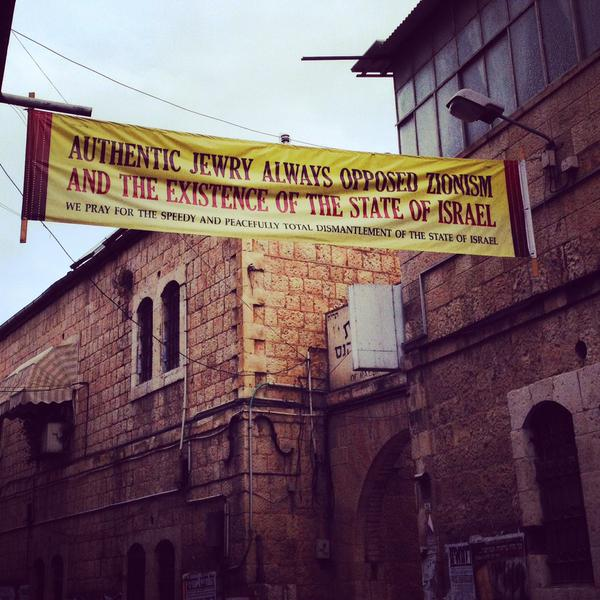
Jews esteem the Torah scholar above all else, while the Zionist “new-Jew” considers the warrior as the epitome of Jewish existence. Young Ultra Orthodox children learn about the lives and teachings of great Rabbis and Torah scholars, while young Israeli children in Zionist schools learn about generals and politicians, many who have a history of war crimes. This is precisely why devoted religious Jews do not allow their children to go to Zionist schools, or for that matter to serve in the Zionist army.
What is perhaps one of the most profound and revealing passages with respect to how Judaism views war and the warrior is the following quote. It is from a book of commentaries by the late Rabbi Samson Raphael Hirsch, a highly regarded scholar and an Orthodox rabbi who lived in Germany in the nineteenth century:
As long as the annals of humanity attach glory to the heroes of the sword; as long as those that throttle and murder the happiness of mankind are not buried in oblivion, subsequent generations will look with admiration upon those infamous strongmen, and their memory will awaken the desire to emulate them in acts of violence and glory.

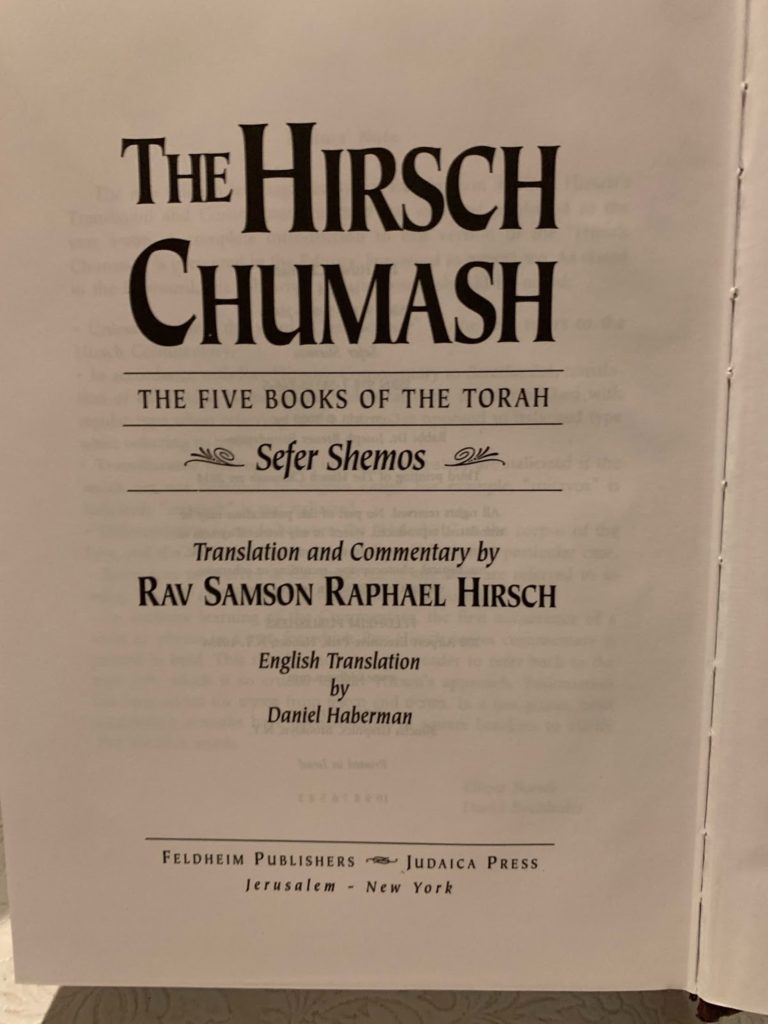
Throughout its short and violent history, Israel has glorified violence and the perpetrators of violence above all else. Every other street in the cities that the Zionists built, and even the one they occupied, carries the name of an Israeli Army general, military unit, or Zionist politician.
However, as we have established here, glorifying war and violence is, like Zionism itself, an anathema to the Jewish faith.
Feature photo | Israelis wave national flags during a Jerusalem Day parade, in Jerusalem, May 10, 2021. Ariel Schalit | AP

